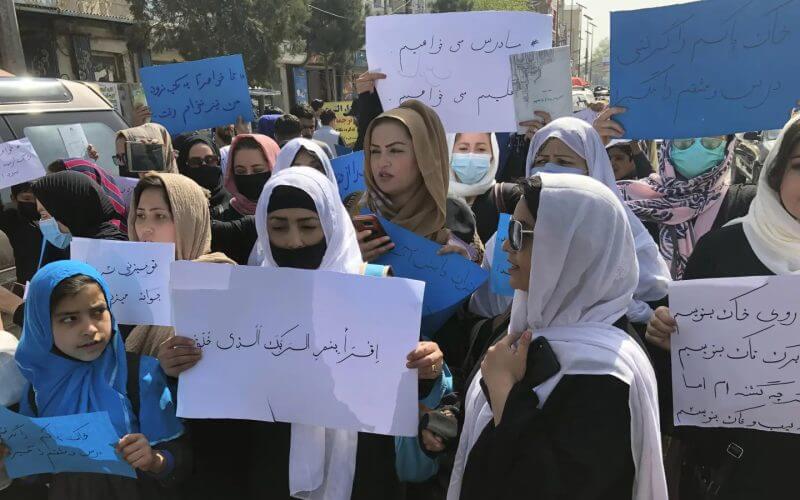The Taliban have prevented scores of female Afghan students from traveling to the United Arab Emirates for education, according to the chairman of a group that offered them scholarships.
“I am unable to express the disappointment I feel now as the Afghan female students, whom I had provided an educational scholarship … were unfortunately unable to reach Dubai airport,” Khalaf Ahmad Al Habtoor, chairman of the Al Habtoor group, said Wednesday on X, formerly known as Twitter.
Al Habtoor said he had provided an opportunity for the women to study in collaboration with the University of Dubai. But despite securing “university admissions, accommodations, transportation, health insurance, and an array of comprehensive services aimed at ensuring the utmost comfort and safety for the female students, our aspirations were crushed.”
Although the Taliban promised a more moderate rule than during their previous period in power in the 1990s, they have imposed harsh measures since seizing Afghanistan in August 2021 as U.S. and NATO forces were pulling out after two decades of war.
They have barred women from most areas of public life and work and cracked down on media freedoms. They have banned girls from going to school beyond the sixth grade, and prohibited Afghan women from working at local and non-governmental organizations. The ban was extended to employees of the United Nations in April.
Related Story: Biden Admin is the ‘Single Largest Donor’ to Taliban-Controlled Afghanistan Since Botched Withdrawal, Watchdog Says









